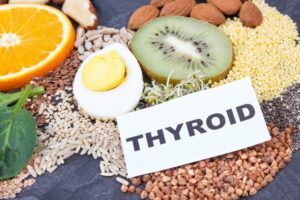Bloating Begone: Powerful Strategies to Relieve and Prevent It!

Bloating, that uncomfortable sensation of your abdomen feeling overly full and gassy, is a common issue that most of us have experienced at some point. It can be triggered by various factors, including overeating, constipation, and medical conditions like lactose intolerance or irritable bowel syndrome (IBS). In this blog, we’ll explore effective strategies to relieve bloating and help you feel more comfortable.
Hydration: Start your day with a glass of lemon water. Lemon water not only helps with hydration but also acts as a diuretic, flushing out excess sodium and reducing water retention. Staying well-hydrated can assist in flushing out what’s causing your bloating.
Fiber Management: High-fiber foods like cruciferous vegetables, fruits, beans, and lentils can sometimes exacerbate bloating due to sugars like raffinose and fructose, which the body can’t absorb. However, including nutrient-rich, high-fiber foods in your diet can promote a healthier digestive system in the long run. To make these foods more digestible, consider steaming or cooking vegetables, and pair lentils with easily digestible whole grains like rice or quinoa.
Avoid Dairy and Gluten: If you experience gas, belly pain, and bloating after consuming dairy products, you might have lactose intolerance. Avoiding dairy can reduce these symptoms. Additionally, if you have gluten intolerance, steer clear of wheat, rye, and barley, as they contain gluten, which can be hard to digest for some people.
Limit Sodium Intake: Excessive salt consumption can lead to water retention and bloating. Be mindful of sodium levels in processed and fast foods. Check food labels and remember that even if you can’t taste the salt, it may still be present.
Say No to Carbonated Beverages: Carbonated drinks like soda contain CO2, which can contribute to bloating. The bubbles in these beverages are filled with gas, and the sugar in most sodas can cause water retention, making you feel bloated. Alcohol, especially when mixed with sugary and carbonated liquids, can worsen bloating and inflammation.
Trim Oily Foods: Avoid deep-fried foods and those prepared with refined oils. Fat digestion is slow, and consuming excessive fat can lead to prolonged feelings of bloating.
Include Digestion-Friendly Foods: Incorporate foods like bananas, dried apricots, raisins, oranges, papaya, pineapple, fennel seeds, ginger, cinnamon, peppermint, and chamomile tea into your diet. These foods are rich in potassium and antioxidants and can aid in digestion while preventing bloating.
Mindful Eating: Slow down and savor your meals. Eating and drinking too quickly can cause you to swallow air, leading to stomach discomfort and bloating. Eating slowly also helps you recognize when you’re full, preventing overeating.
Physical Activity: Engaging in physical activity can help release trapped gas and alleviate gas-related discomfort. Post-meal walks, in particular, are effective in preventing gas buildup. Regular physical activity also helps manage stress, which can contribute to bloating.
Quit Smoking: Smoking has been linked to bloating, heartburn, and other digestive problems. Quitting smoking can have numerous health benefits, including reducing digestive discomfort.
Consider Supplements: Probiotics, digestive enzymes like lactase, and peppermint oil supplements have shown promise in preventing bloating. Discuss with your healthcare provider if these supplements might be beneficial for you.
Remember, there are numerous causes of bloating, and sometimes it’s just related to what and how you eat. While occasional bloating is usually not a cause for concern, if you experience persistent, painful bloating that doesn’t improve or worsens over time, it’s essential to seek medical attention. It could be a sign of an underlying health issue that needs to be addressed.
Incorporating these strategies into your daily routine can help you banish bloating and enjoy a more comfortable and bloat-free life. By making mindful dietary choices, staying hydrated, and staying active, you can improve your digestive health and reduce the discomfort of bloating.
Share this article
Priyanka Bhadauriya
With over 8 years of expertise in nutrition and dietetics, Priyanka's career spans various healthcare settings. Her postgraduate degree in Dietetics and Public Health Nutrition underlines her profound understanding of nutrition's scientific intricacies. Additionally, as a diabetes educator, she provides crucial support to individuals managing diabetes, enhancing their well-being. Priyanka's comprehensive approach to nutrition makes a positive impact on public health.













